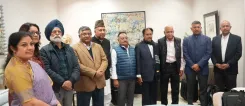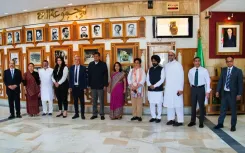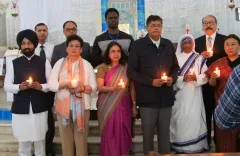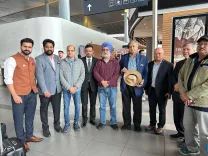Is it Crucial to Uncover Pakistan's Proxy War Against India?
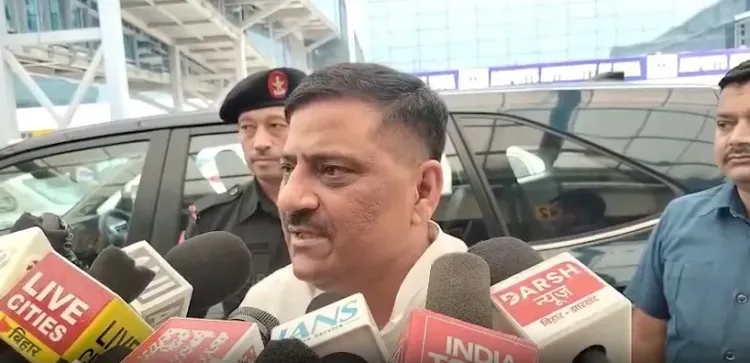
Synopsis
In a bold stance, BJP MP Sanjay Jha calls for international awareness about Pakistan's ongoing proxy war against India. As he leads a multi-party delegation to East Asia, the focus remains on countering cross-border terrorism and the strategic implications of Operation Sindoor. This initiative aims to unite political factions and strengthen global cooperation against terrorism.
Key Takeaways
- India's unified political front against terrorism.
- Operation Sindoor signifies a new approach to counter-terrorism.
- International delegations aim to expose Pakistan's proxy war.
- Cross-border terrorism remains a significant threat.
- Global cooperation is essential in combating terrorism.
New Delhi, May 21 (NationPress) BJP MP Sanjay Jha on Wednesday emphasized the necessity of revealing Pakistan's enduring "proxy war" against India, as the nation continues to instigate cross-border terrorism. He is scheduled to depart for Japan on Wednesday night, leading a multi-party delegation as part of India's diplomatic counteroffensive, showcasing the nation's battle against terrorism and the strategic importance of Operation Sindoor.
Joining Jha are MPs Aparajita Sarangi and Brij Lal from the BJP, Abhishek Banerjee and John Barla from the Trinamool Congress, and Salman Khurshid from the Congress, embarking on a high-level mission to five pivotal East and Southeast Asian countries -- Japan (May 22), South Korea (May 24), Singapore (May 27), Indonesia (May 28), and Malaysia (May 31).
In an interview with IANS, Jha remarked, "There are two things. First, the country has been facing terrorism for decades. This terrorism has always come from across the border from Pakistan. This is not a hidden thing."
He continued, "In the past, whether it was the 2008 Mumbai attacks or the Pulwama attack, India always shared all the information and invited them to join the investigation. But if we share data with the thief, can we expect justice from them? The Pakistan government itself funds the terrorists, trains them through the army, plans and executes it. This is like a proxy war against India."
Discussing the recent military actions, he stated, "Now India has clearly indicated in Operation Sindoor that enough is enough. Nine terrorist camps were completely destroyed by our Air Force personnel. The images emerging convey all the information. Even a state funeral was organized for the terrorists killed in Operation Sindoor, and Pakistani Army personnel were present."
Jha reiterated India's new stance, asserting, "Just like the Prime Minister has stated, Operation Sindoor is the new normal. India will not tolerate terrorism but will continue its fight against it and eradicate it from the roots."
He expressed gratitude to the government for engaging leaders across political lines, adding, "We thank the Prime Minister for bringing together leaders from across the political spectrum in these seven delegations. India stood united during Operation Sindoor, whether from the government or the Opposition. When we go abroad, we don't represent our parties but India."
This global initiative follows the April 22 terror attack in Pahalgam and India's robust military and diplomatic response. India is dispatching seven delegations to 25 countries aimed at presenting evidence of Pakistan's role in cross-border terrorism and reaffirming India's zero-tolerance policy.
Alongside Jha's group, another delegation led by MP Shrikant Shinde is set to visit the UAE, Congo, Sierra Leone, and Liberia. Concurrently, a third group directed by DMK leader Kanimozhi will commence their mission on Thursday, traveling to Russia, Slovenia, Greece, Latvia, and Spain.
These delegations, made up of leaders from various political parties and supported by senior diplomats, are charged with delivering India's unified and unequivocal message against terrorism and bolstering international collaboration in combating this threat.

